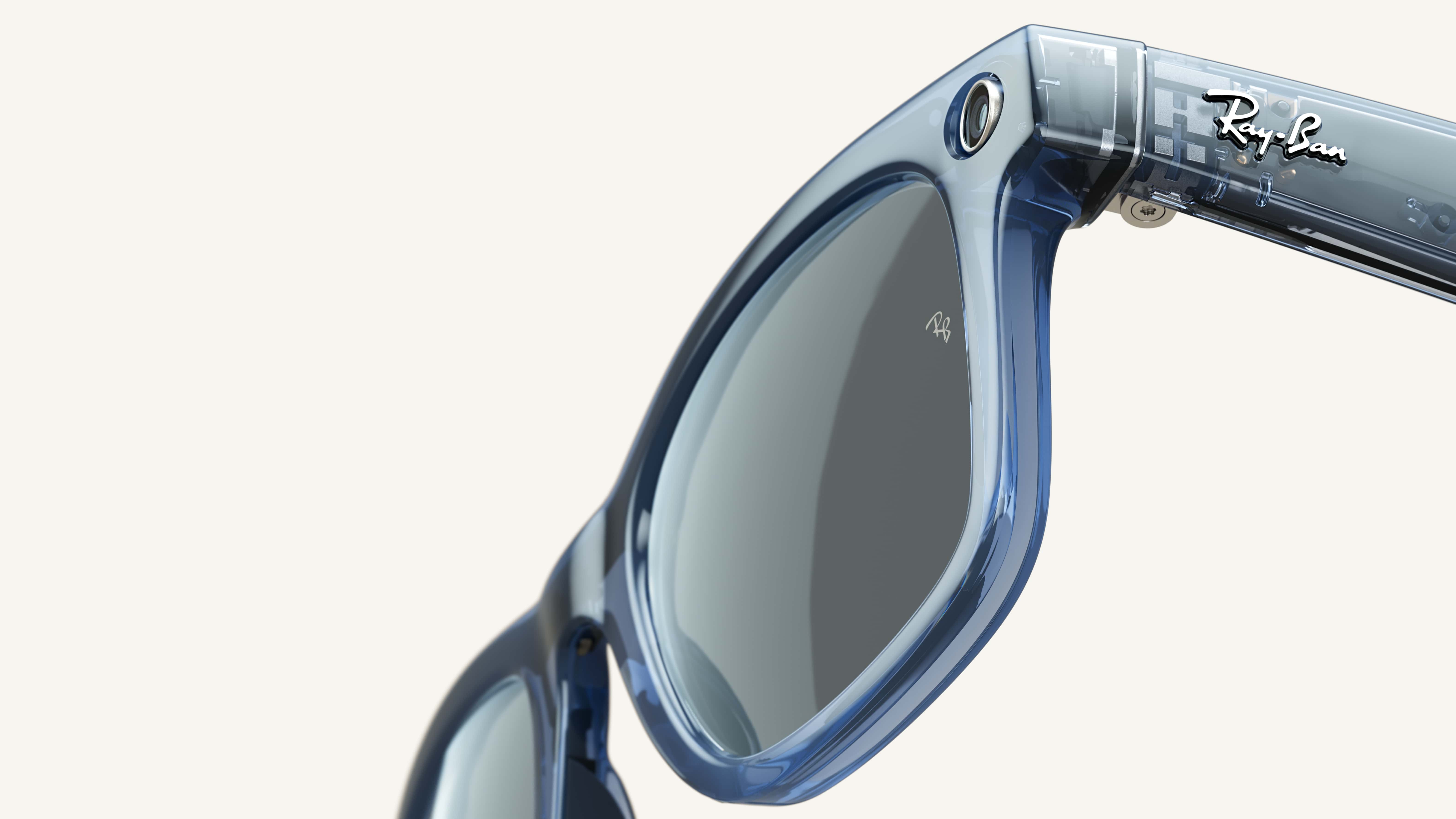[ad_1]
Meta’s Reality Labs division – the team behind its VR hardware and software efforts – has turned 10 years old, and to celebrate the company has released a blog post outlining its decade-long history. However, while a trip down memory lane is fun, the most interesting part came right at the end, as Meta teased its next major new hardware release: its first-ever pair of AR glasses.
According to the blog post, these specs would merge the currently distinct product pathways Meta’s Reality Labs has developed – specifically, melding its AR and VR hardware (such as the Meta Quest 3) with the form factor and AI capabilities of its Ray-Ban Meta Smart Glasses to, as Meta puts it, “deliver the best of both worlds.”
Importantly for all you Quest fans out there, Meta adds that its AR glasses wouldn’t replace its mixed-reality headsets. Instead, it sees them being the smartphones to the headsets’ laptop/desktop computers – suggesting that the glasses will offer solid performance in a sleek form factor, but with less oomph than you’d get from a headset.
Before we get too excited, though, Meta hasn’t said when these AR specs will be released – and unfortunately they might still be a few years away.
A report from The Verge back in March 2023 shared an apparent Meta Reality Labs roadmap that suggested the company wanted to release a pair of smart glasses with a display in 2025, followed by a pair of ‘proper’ AR smart glasses in 2027.

However, while we may have to wait some time to put these things on our heads, we might get a look at them in the next year or so,
A later report that dropped in February this year, this time via Business Insider, cited unnamed sources who said a pair of true AR glasses would be demoed at this year’s Meta Connect conference. Dubbed ‘Orion’ by those who claim to be in the know, the specs would combine Meta’s XR (a catchall for VR, AR, and MR) and AI efforts – which is exactly what Meta described in its recent blog post.
As always, we should take rumors with a pinch of salt, but given that this latest teaser came via Meta itself it’s somewhat safe to assume that Meta AR glasses are a matter of when, not if. And boy are we excited.
Currently Meta has two main hardware lines: its VR headsets and its smart glasses. And while it’s rumored to be working on new entries to both – such as a budget Meta Quest 3 Lite, a high-end Meta Quest Pro 2, and the aforementioned third-generation Ray-Ban glasses with a screen – these AR glasses would be its first big new hardware line since it launched the Ray-Ban Stories in 2021.
And the picture Meta has painted of its AR glasses is sublime.
Firstly, while Meta’s current Ray-Ban smart glasses aren’t yet the smartest, a lot of major AI upgrades are currently in beta – and should be launching properly soon.

Its Look and Ask feature combines the intelligence of ChatGPT – or in this instance its in-house Meta AI – with the image-analysis abilities of an app like Google Lens. This apparently lets you identify animals, discover facts about landmarks, and help you plan a meal based on the ingredients you have – it all sounds very sci-fi, and actually useful, unlike some AI applications.
We then take those AI-abilities and combine them with Meta’s first-class Quest platform, which is home to the best software and developers working in the XR space.
While many apps likely couldn’t be ported to the new system due to hardware restrictions – as the glasses might not offer controllers, will probably be AR-only, and might be too small to offer as powerful a chipset or as much RAM as its Quest hardware – we hope that plenty will make their way over. And Meta’s existing partners would plausibly develop all-new AR software to take advantage of the new system.
Based on the many Quest 3 games and apps we’ve tried, even if just a few of the best make their way to the specs they’d help make Meta’s new product feel instantly useful. a factor that’s a must for any new gadget.
Lastly, we’d hopefully see Meta’s glasses adopt the single-best Ray-Ban Meta Smart Glasses feature: their design. These things are gorgeous, comfortable, and their charging case is the perfect combination of fashion and function.

Give us everything we have already design-wise, and throw in interchangeable lenses so we aren’t stuck with sunglasses all year round – which in the UK where I’m based are only usable for about two weeks a year – and the AR glasses could be perfect.
We’ll just have to wait and see what Meta shows off, either at this year’s Meta Connect or in the future – and as soon as they’re ready for prime time, we’ll certainly be ready to test them.
You might also like
[ad_2]
Source Article Link

